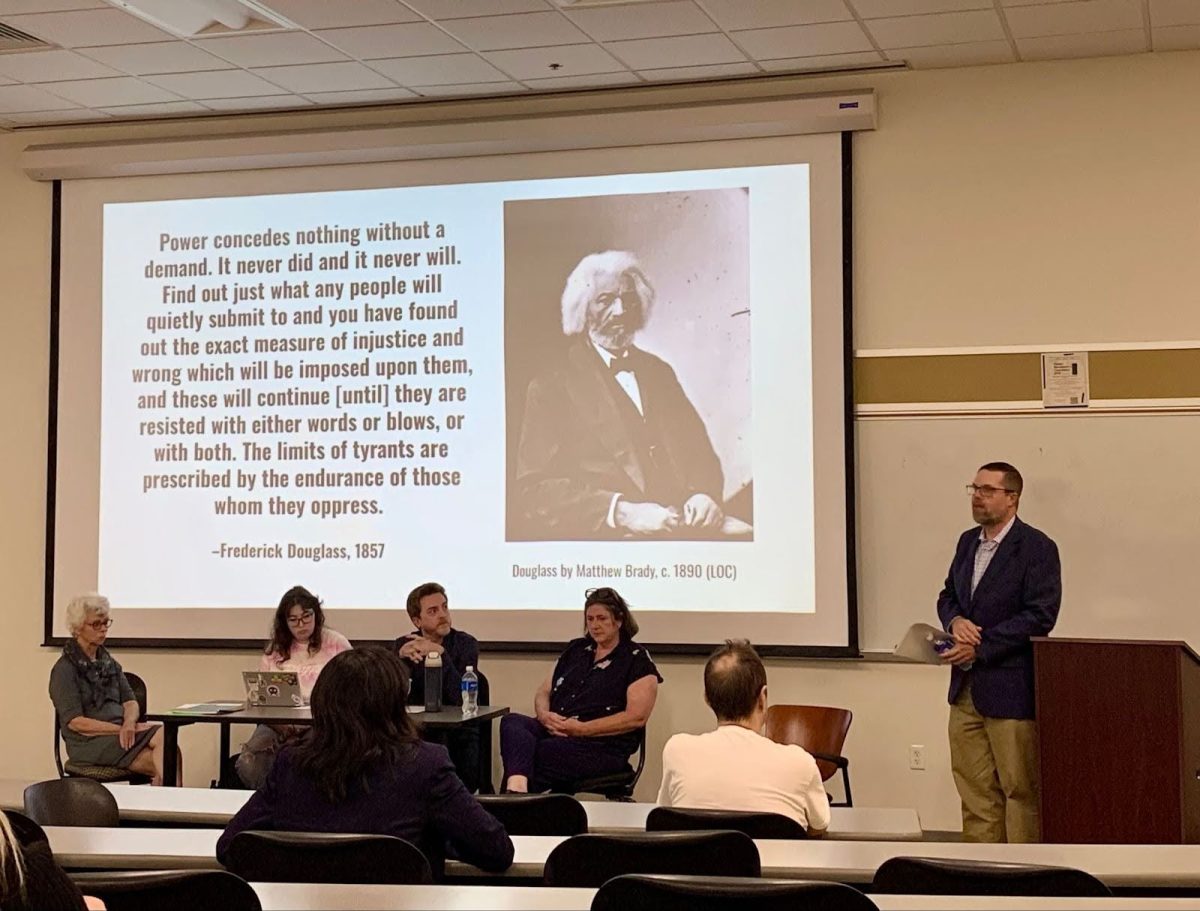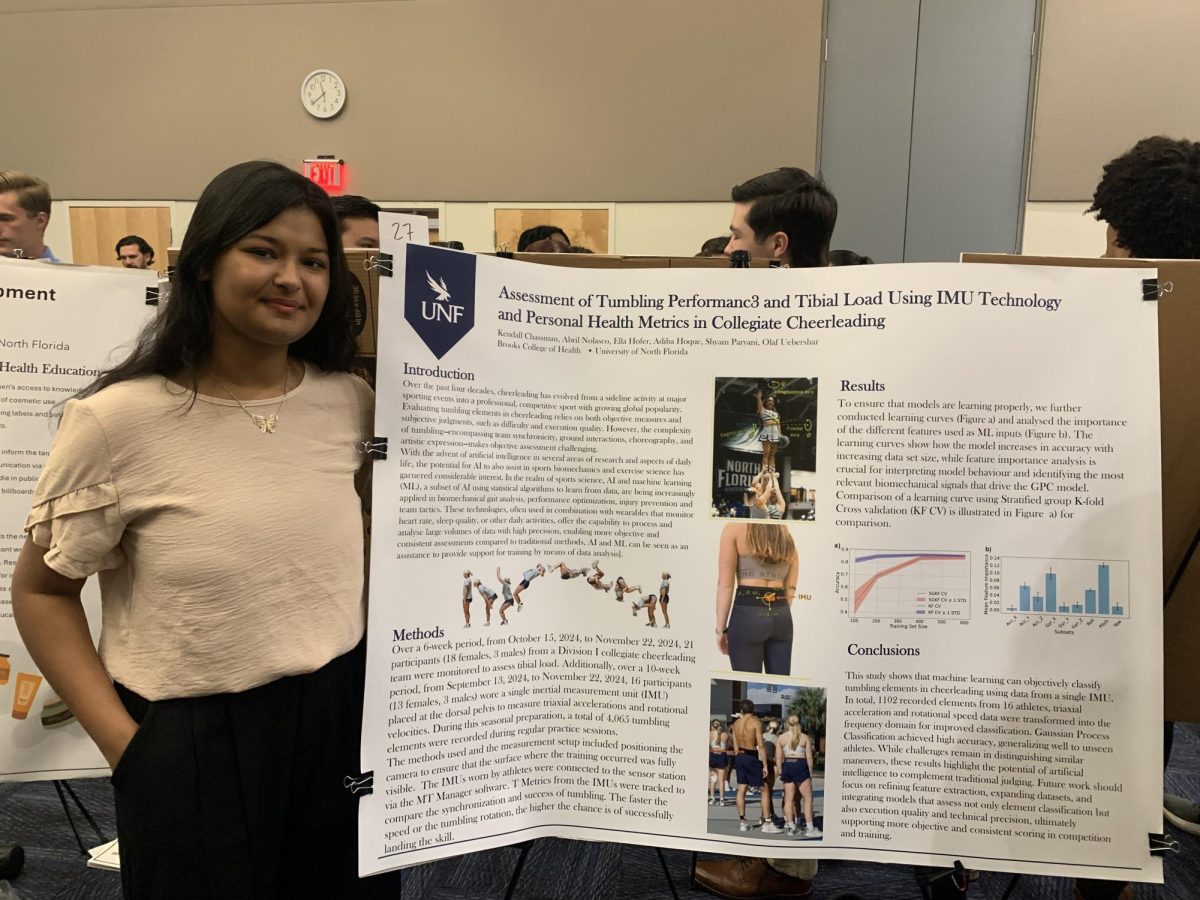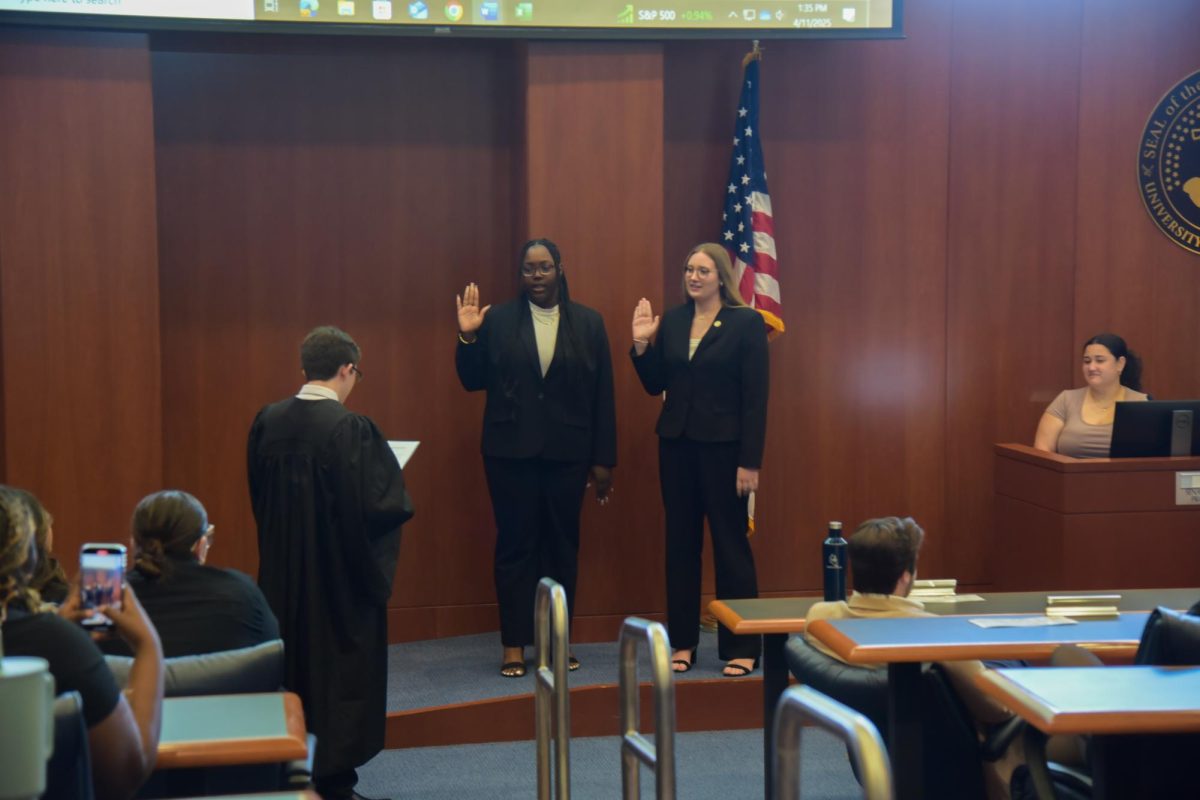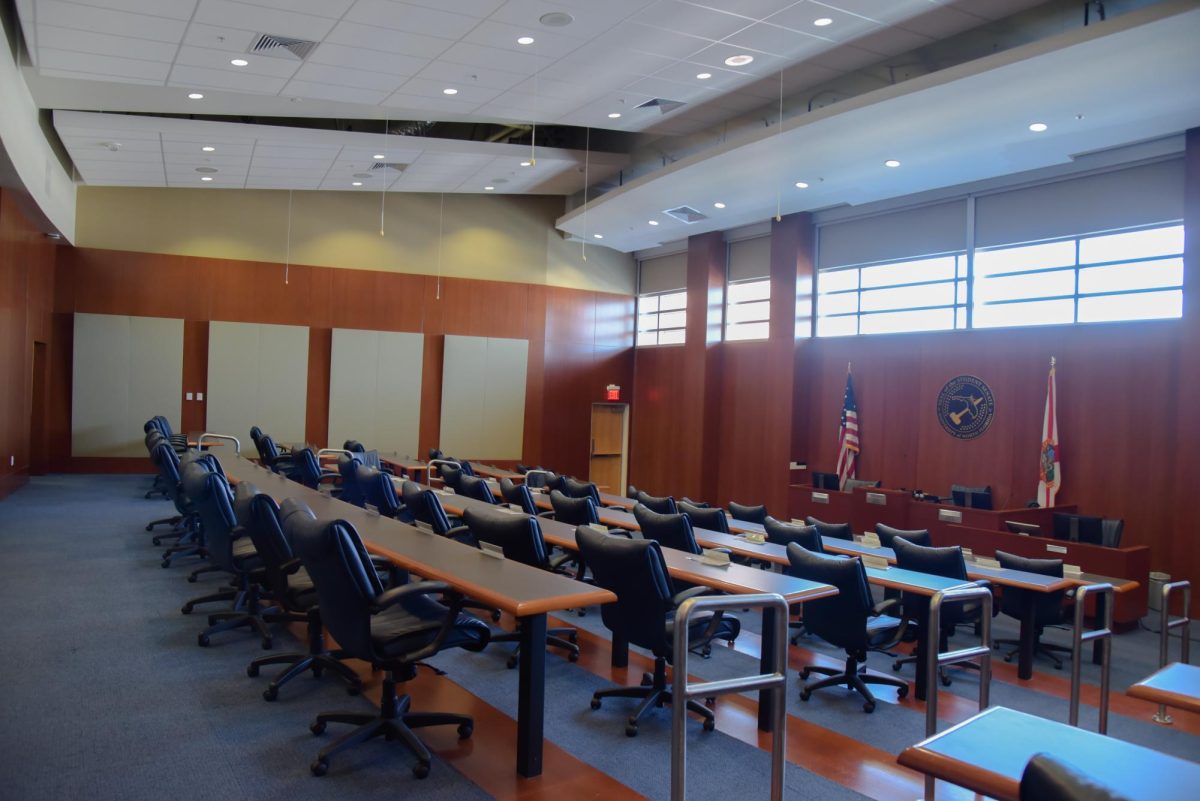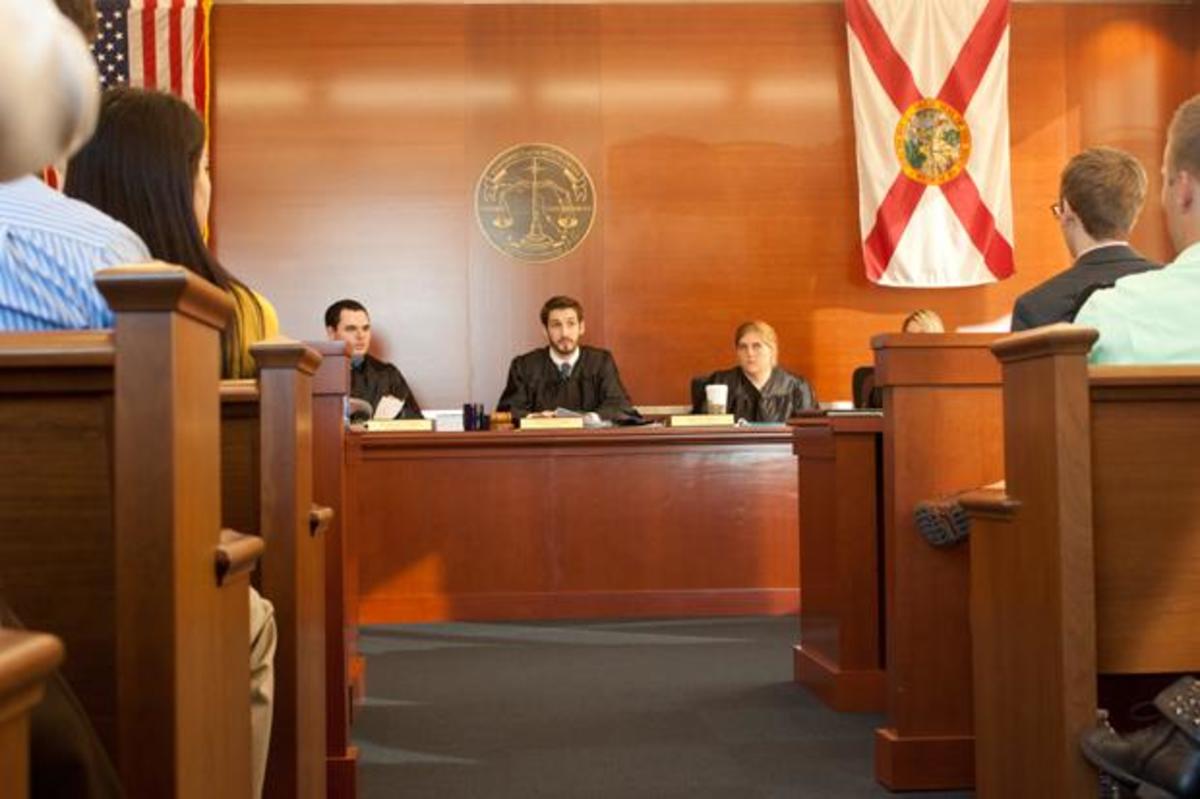
Photo by Joshua Brangenberg
UPDATE – 10/9/14 at 12:01 p.m.
No punitive action was taken against Senate President Kaitlin Ramirez at the Oct. 9 hearing.
Chief Justice Daniel Powers said the court decided to strongly advise the Constitution and Statutes Committee to look at the statute in question and revise the language.
“We would like to see this resolved within 30 days,” Powers said. “Also, please have that committee consider the use of the word ‘passage’ and have it fall in line with what we interpret it to mean.”
“Being this is the first offense we have taken a more lenient route,” he said. “We don’t want to see this happen again.”
He said the court will take more of a punitive measure if it does happen again.
***
The judiciary found Senate President Kaitlin Ramirez in violation of a Student Government (SG) constitutional statute in a hearing at 9:30 a.m. on Oct. 8.
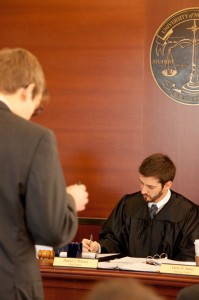
Photo by Joshua Brangenberg
On Monday, Ramirez announced to senators at SG’s committee meetings that Joseph Turner, the student body president, issued her on Oct. 2 with a notice of noncompliance in accordance with statute 408.4.
408.4: The Constitution and Statutes Chair must, upon passage of a bill revising statute, submit an updated version of statute to the Senate President. The records must be turned into the Webmaster within 11 business days from the Senate President.
In the judicial deliberation, the main discussion came down to the definition of “passage” in the above statute.
Attorney General Matthew Harris, the prosecutor, argued that Article II defines “passage” as passing through senate.
Ramirez, acting as her own defense, argued that both Article II and Black’s laws define “passage” as a bill passing into law, which can only happen after the president signs it. She said this has been precedence for 2,801 SG legislative acts.
***
ARTICLE II
Section 7: Passage of Legislation
A. The origination of legislation in Senate shall be prescribed by law.
B. The passage of Bills and Joint Resolutions shall be governed pursuant to
Section 8 of this Article
C. The passage of Simple Resolutions that only express the official opinion of the Senate shall require a majority vote and are not subject to the Executive Veto power outlined in Section 8 of this Article.
SECTION 8
A. Every Bill or Joint Resolution passed by majority vote of the Senate shall be presented, by the Senate President, to the President as prescribed by law, but not to exceed five (5) business days.
B. The Bill or Joint Resolution shall become law if the President approves and signs it, or fails to veto it within five (5) business days after its presentation.
***
The judiciary ultimately sided with the prosecution.

Photo by Joshua Brangenberg
During discussion, Chief Justice Daniel Powers said there was too much discussion being had over one word. Powers said the judiciary had the authority to interpret the law.
Within the context, he said it was safe to assume that the timeline for “passage” – giving five days to each cabinet and one to the webmaster – could clarify the intent of the 11-day deadline for the senate president.
“I think our hands are tied on this one,” Powers said.
He said the proper solution could be to clarify when something is law and when something is passed. He said this was a small issue that could be cleared up by one bill to make it clear.
The judiciary will decide what punitive action to take against Ramirez on Oct. 9 at 8:30 a.m. in the SG judicial chambers. This will be open to the public.
Email Lydia Moneir at news@unfspinnaker.com
Email Cody Quattlebaum at assistantnews@unfspinnaker.com







